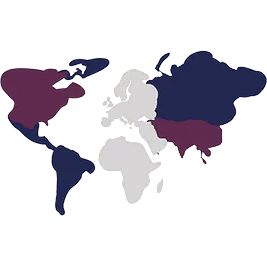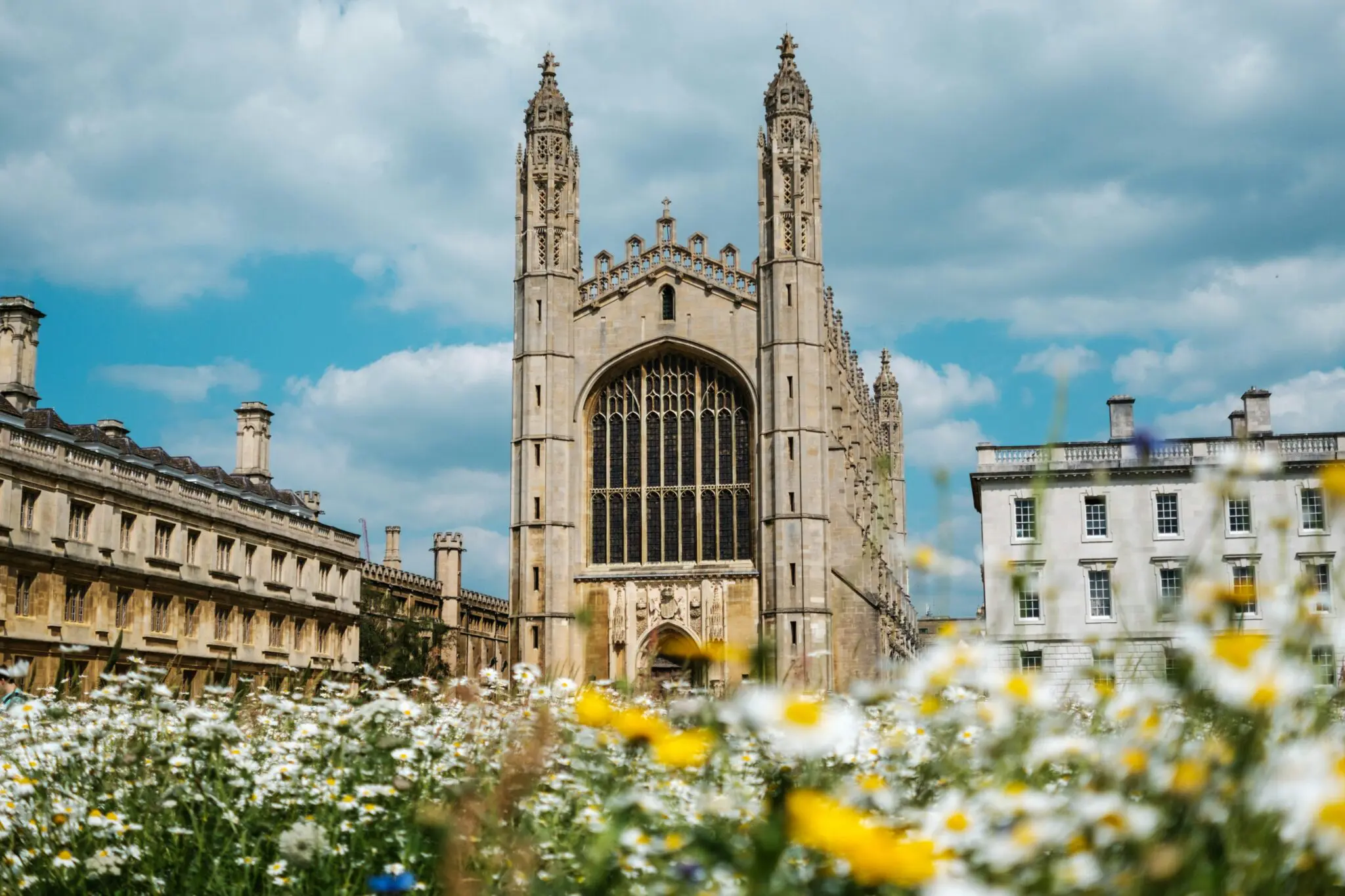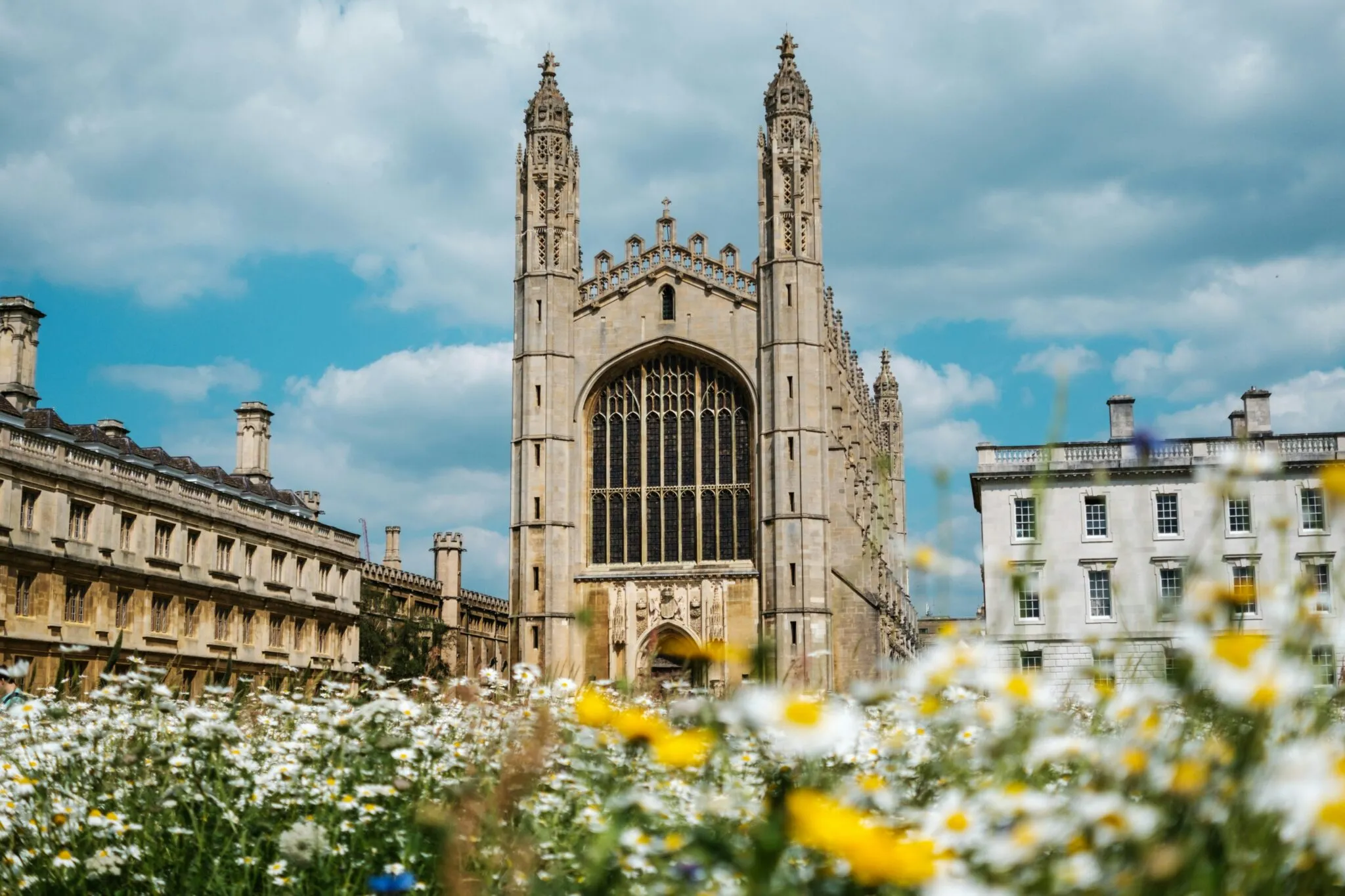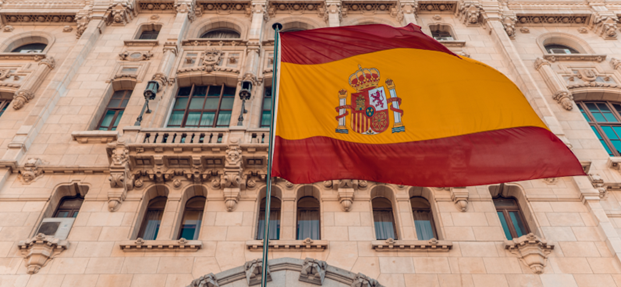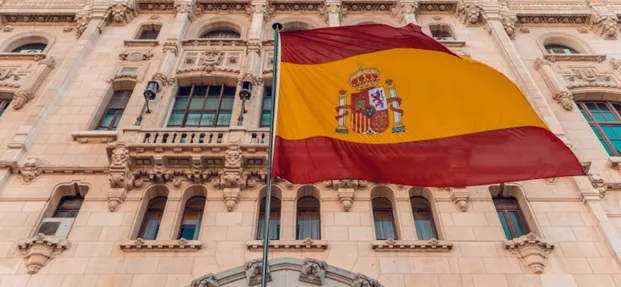Moving to Ireland from Nigeria
You can move to Ireland from Nigeria with the legal assistance of experienced immigration lawyers. Immigration Advice Service offers full immigration support, such as eligibility criteria checks, document preparation, visa applications, and concierge services.
For more information on how to apply for an Ireland visa from Nigeria, details about living in Ireland as a Nigerian, and other services we offer, call us today on +2342013306361 and +44 (0) 331630092, or send us a message online.
Why Consinder Moving to Ireland from Nigeria
Ireland, with its vibrant economy, diverse society, and high quality of healthcare and education, is a top choice for many Nigerians. The presence of global corporations like Dell, Facebook, Pfizer, and Citibank means job opportunities in healthcare, technology, and finance are abundant.
You need a visa to move to Ireland from Nigeria for study, work, tourism, business, or family reunification. You must submit supporting documents to prove you meet the criteria for the visa you choose.
At Immigration Advice Service, we offer support for the visa application process by assessing your eligibility, preparing your supporting documents, and submitting the application on your behalf. Contact us today so we can start your journey from Nigeria to Ireland.
Nigerian Emigration
For Nigerian emigration matters, please call +44 (0) 3316300929 or +2342013306361
Other Immigration and Emigration Matters
For immigration/emigration to/from other countries, please call:
US – +1 844 290 6312
Ireland – (+353) 061 518 025
UK – (+44) 333 4149244
Costs of Moving to Ireland from Nigeria
Before moving to Ireland, note the following costs:
Moving Costs: You’ll pay airfare, which may include shipping your personal belongings. The cost depends on the airline and shipping company you choose.
Taxes and Healthcare Costs: Healthcare in Ireland is not free, even for citizens. Many migrants in Ireland pay for private health insurance, which can cost between €1500 and €1,925 per annum. Tax is another hidden cost you may encounter in Ireland. If your income is below or equal to €42,000, you’ll be taxed at 20%. If it is above €42,000, you will be taxed at 20%, and the balance taxed at 40%. If you are studying or have children attending school, you must pay for books, school uniforms, and bus fare.
Visa Application Fees: A visa to Ireland costs €60 for a single entry and €100 for multiple entries. Employment permits cost €500 for 6 months or less and €1000 for 24 months.
Financial planning is crucial before moving to Ireland. The amount you need to save depends on your purpose of travel:
- Students need to have a savings of €10,000 per year, excluding tuition
- Business people and tourists can budget between €35 to €50 daily if they have accommodation and €100 to €150 if they will stay in a hotel or Airbnb
- Nigerians with a work permit need a minimum savings of € 2,032 for a month before their first salary
Living Expenses: The Average rent in popular cities like Dublin and Cork is €2,000 and €1,515 per month. Electricity costs between €50 and €120 monthly, depending on usage. Water costs between €20 to €45 monthly. Waste management costs up to €15, while internet services and television can cost up to €50 monthly. You can use the Bus Eireann (National Bus Company) if you live in the city. It costs €132.50 monthly for Dubin dwellers, €97.50 for Cork, €69.50 for Galway and Limerick, and €62.50 for Waterford dwellers.
Unsure about the financial implications of moving to Ireland from Nigeria? Our immigration consultants are here to provide expert advice and support for a smooth relocation. Call us today at +2342013306361 or message us online to start your financial planning and feel in control of your move.
Employment in Ireland as a Nigerian Citizen
Working in Ireland requires an employment permit, which you can obtain with a job offer from an Irish employer. The Department of Enterprise, Trade, and Employment (DETE) issues these permits through the Employment Permits Online System (EPOS). There are various types of permits you can apply for, each catering to different job offers and circumstances. They are:
- Critical Skills Employment Permit: For skilled professionals with job contracts in a field with a skills shortage in Ireland
- General Employment Permit: For job offers that require no special skills and are not in high demand
- Contract for Service Employment Permit: To work for a company in Ireland on a contract basis for your Nigerian company
- Intra-Company Transfer Employment Permit: This permit allows you to be transferred from your company in Nigeria to its branch in Ireland
- Sports and Cultural Employment Permit: For Nigerians with exceptional skills in business and sports
- Internship Employment Permit: You can intern in Ireland for up to 12 months. The internship must be a requirement for graduating from your course
- Reactivation Employment Permit: This permit allows you to work in Ireland if you are unemployed due to employer abuse or government policy change
- Exchange Agreement Employment Permit: This permit is for Nigerians undergoing exchange programmes like Fullbright USA and the International Association for the Exchange of Technical Experience (IAESTE)
- Hosting Agreement for Academic Researchers: This permit is issued by the Department of Further and Higher Education, Research, Innovation, and Science for researchers attached to an eligible research institute in Ireland
Industries Hiring Nigerians
The following industries have a high demand for Nigerian skilled workers:
- Healthcare: The ageing population, shortage of skilled workers, and advancement in health tech are reasons why there are many jobs for Nigerians in this sector. The Irish Health Service Executive offers sponsorships to Nigerian health workers
- Information Technology: If you’re a skilled software engineer, web developer, IT engineer, or data analyst, there are opportunities with multinationals like Facebook, Dell, Google, and IBM with offices in Ireland
- Construction: Civil mechanical, chemical, and electrical engineers are in high demand in this sector. Conack, Collen, Walls, or Monami are some of the construction companies in Ireland
- Banking and Finance: Ireland has a robust banking and finance industry.There are roles at the Bank of Ireland, Allied Irish Banks, and Citigroup
Eligibility Criteria
- You must show you have a job offer from an Irish employer
- Your employer must prove they took the Labour Markets Needs Tests and didn’t find any Irish, EU, EEA, or Swiss citizens who could do the job
- Your employer must prove that at least half their employees are Irish, EU, EEA, or Swiss citizens
Required Documents
- ECOWAS passport with at least 2 blank pages
- Company details like address, official name, organogram, and details of key personnel
- Job offer signed by you and your employer. It must outline your role, salary, and employment terms
- Receipt of visa fee payment
- Two recent and coloured passport photographs
Average Salaries
The national minimum wage in Ireland is €12.70 per hour. There are certain minimum yearly salary requirements for each employment permit type:
- €38,000 for the Critical Skills Employment Permit
- €34,000 for the General Skills Employment Permit
- €46,000 for senior managers or €34,000 for graduate trainees for the Intra-Company Transfer Employment Permit
- €23,811 or €30,000 for the Hosting Agreement for Academic Researchers Permit
Spousal Employment
You can work in Ireland without an employment permit if your spouse or partner is in Ireland on any of the following permits:
- Critical Skills Employment Permits
- Stamp 1H Permit for Doctors
- Hosting Agreement for Academic Researchers Permit
- General Employment Permits
- Intra-Corporate Transferee (ICT) Permits
Upon arrival in Ireland, register with Immigration. You’ll be issued an Irish Resident Permit with Stamp 1G, which permits you to work.
If you need help filing your employment permit or work visa applications, contact our expert immigration consultants. They will also review your employment contract to ensure you’re not being short-changed. Call us today at +2342013306361 or send us a message online.

Studying in Ireland: A Guide for Nigerian Students
To study in Ireland, you must be enrolled in a course on the Interim List of Eligible Programmes (ILEP) and meet the criteria below:
- Show you can do well in your chosen course
- Pay full tuition
- Show you have €10,000 to support yourself per year of study
- Show you can understand the English language
Required Documents
- Admission letter from the school showing you’re enrolled in a full-time programme
- Receipt showing you paid the full tuition for your course
- Bank statement with a minimum balance of €10,000 to cover your living expenses per year of study
- Evidence you understand the English language except if you’re studying an English language course
- Private medical insurance worth at least €25,000
- Signed and completed visa application form
- Application letter stating your intended arrival and departure dates
- Two coloured and recent passport photographs
- Valid ECOWAS passport
- CV showing employment and academic history
- Qualifications and certificates showing you meet the prerequisite for your course
For child applicants going to Ireland alone:
- Birth certificate
- Signed and notarised consent form from both parents stating they permit the child to study in Ireland
- Passport bio-data page of both parents
- National Identity cards of both parents with their signatures
- Accommodation arrangements for the child
- Police clearance from the region the child will study
Top Universities in Ireland
- Trinity College Dublin
- University College Dublin
- RCSI University of Medicine and Health Sciences
- University of Galway
- University College Cork
- Dublin City University
- University of Limerick
- Maynooth University
- Technological University Dublin
- National College of Art and Design
Working with a Student Visa
You can work while on a study visa 20 hours per week during term time and full-time during holidays. Holidays typically run from June to September and December 15 to January 15
Scholarships and Financial Aid Available for Nigerian Students
- Erasmus Mundus Scholarships
- Student Grant Scheme
- Student Assistance Fund
- Student Accommodation Assistance
- Government of Ireland Postgraduate Scholarship Scheme
- All Ireland Scholarship Scheme
- The Irish Refugee Education Fund
Living Expenses for Students
Aside from tuition, there are other expenses like accommodation, books, food, utilities, and transportation. You will likely need to budget between €800 to €1,500 monthly for these expenses. To save money, you can opt to live in school hostels and dorms as they are cheaper than accommodations outside school.
If you need assistance with study visa applications, scholarship advice, and university admissions, contact our expert Ireland immigration consultants at Immigration Advice Service.
How to Apply for an Ireland Visa from Nigeria
First, apply for an employment permit (only for a work visa) on the EPOS website and pay the required fee. It costs €500 for 6 months or less and €1000 for 24 months. Add your supporting documents and wait for 13 weeks for a response.
Then, apply for a visa to Ireland on the AVATS platform. Attach your supporting documents and then schedule document submission and biometrics at VFSGlobal in Abuja or Lagos. The visa application will cost €60 for a single entry and €100 for multiple entries.
When you get to Ireland, visit the Immigration Bureau to get an Irish Resident Permit.

Housing and Accommodation in Ireland for Nigerian Immigrants
There is high competition for apartments in the country, especially in big cities like Dublin and Cork. To rent an apartment in Ireland, you must prove you are a legal resident by presenting:
- Your passport with your visa
- Admission letter, if you’re a student
- Employment contract, if you’re working
- Bank details to prove you can pay rent and support yourself
Most landlords will ask for a 1 or 2-month deposit, but it will be refunded at the end of your rental contract if you don’t damage anything or terminate the agreement. To search for accommodation in Ireland before arrival, visit websites like daft.ie, myhome.ie and rent.ie. Filter your search based on location, housing type, and amenities. The closer your choice is to a bus route, the more expensive it will be. Real estate agents assist in finding accommodation, but you’ll have to pay for their services.
Best Cities for Nigerian Expats
Dublin: The capital city has the largest Nigerian community in Ireland. It is a hub of opportunities in finance, tech, and healthcare. You’ll also find some of the best schools in Ireland, like Trinity College and University College Dublin. Nigerian communities in Dublin host many events that remind you of home like the New Yam and Eyo festivals. The average rent monthly for a 1 bedroom apartment in Dublin is €2000.
Cork: In Cork, the Nigerian population is still growing. It is more affordable than Dublin and has many historical sites like the Cork City Gaol and the Blarney Castle. Most of Cork’s expats work in pharmaceutical and tech companies like Dell, Pfizer, and Apple. The University College Cork has a large number of Nigerian students studying engineering, science, and business. The city is a great choice for religious Nigerians as there are many branches of Nigerian religious organisations like the Redeemed Christian Church of God (RCCG) and mosques for Islamic faithfuls. The average monthly rent for a bedroom apartment in Cork is €1515.
Galway: Often touted as the best place to live in Ireland due to its high quality of life, Galway is a city on the coast with many opportunities in IT, health tech, and tourism. Companies like Boston Scientific and Medtronic hire expats. You’ll find prestigious health science, business, and engineering degrees at the National University of Ireland, Galway. The average rent for a one bedroom apartment in Galway is €1536.
Setting Up a Home
You can choose between a furnished and an unfurnished apartment. An unfurnished apartment is more affordable, but it may be better to rent a furnished apartment to save stress.
After rent, you have to pay for gas and electricity, waste management, and water. You can pay these bills through an app, the service provider’s website, online, or at a pay zone. Bills are paid monthly.
Looking for accommodation in a foreign land can be cumbersome, but IAS is available to help. Our concierge service will search for accommodation based on your budget and help you move from Nigeria to your Irish apartment with ease.
Navigating the Healthcare System in Ireland
Before moving to Ireland, you must prove you have purchased private health insurance worth at least €25,000 that covers you for at least a year. After one year, you’ll have to purchase health insurance in Ireland. You can get public or private health insurance. Public insurance is more affordable, but the wait times are long. Private health insurance, on the other hand, has less wait time and is more expensive.
Public Health Insurance Average Cost Per Year
- Entry level costs €500
- Basic level costs €700
- Quality level costs €1200
Private Health Insurance Average Cost Per Year
- Entry level costs €650
- Basic level costs €1000
- Quality level costs €1500
- Private room in Private Hospital level costs €1800
Medical card holders can access healthcare for free. To get this card, you must prove you’re a low-income earner or have a disability. Even with health insurance, you’ll still need to pay for certain health services.
- If you are taken to an emergency room, you’ll pay €100 except if a general practitioner referred you
- If you stay overnight in a hospital, you’ll pay between €80 to €90
- If you have a routine monthly prescription, you’ll pay between €140 to €160
- Single hospital visit costs between €50 to €55
Your health insurance then covers costs above these.
Vaccinations and Health Checks
Take the following vaccinations before travelling to Ireland. While they are not standard requirements, you can take them as a precaution.
- Yellow fever vaccine
- Hepatitis A and B vaccines
- Tetanus
- Seasonal flu vaccine
- COVID-19 vaccine
Our immigration specialists at IAS can help you understand the healthcare requirements and find the right insurance. Call us today at +2342013306361 or send us a message online.
Legal and Documentation Requirements for Nigerian Immigrants
To move to Ireland from Nigeria, you must submit supporting documents to prove you meet the legal requirements for your chosen visa. Below are the general documents required for an Irish visa:
- Valid ECOWAS passport
- Signed and completed visa application form
- Two recent passport photographs
- Receipt of visa fee payment
- Application letter outlining your reason for visiting Ireland
- Bank statement showing you can cover your living expenses in Ireland
- Medical insurance worth at least €25,000
- Evidence you will return to Nigeria, such as a birth or marriage certificate, property deed, employment, or admission letter
- Admission letter
- Evidence you have paid your tuition fee
- Resume outlining work or educational history
- Employment contract
- Invitation letter from your host
- Employment permit from the DETE
- Birth or marriage certificate proving relationship with host
Dual Citizenship
Ireland allows dual citizenship, so Nigerians can apply for citizenship if they have been living in Ireland legally for at least 5 years, are married or in a civil partnership with an Irish national, or have been living in Ireland as a refugee for 3 years. Below are the requirements you must meet to apply for citizenship in Ireland:
- Be at least 18 years old
- Prove you are Nigerian
- Prove you have been living in Ireland legally for 3 to 5 years and have been in Ireland for a full year before your application. You are permitted to be absent for a maximum of 70 days in this 1 year
- Prove you’ll keep living in Ireland after getting citizenship
- Show you have not committed any criminal offence during your years in Ireland
- Prove you have been married or in a civil partnership with an Irish national for at least 3 years and are living with them when you apply for citizenship and when your application is approved
- Prove your partner is an Irish national
- Prove the Minister of Justice granted you refugee status
Documents Required
- Signed and completed application form
- Valid ECOWAS passport
- Irish Resident Permit that covers each year of residency
- Certified copy of your marriage certificate to an Irish citizen
- Statutory declaration that shows you know what you are getting into
- Receipt of application fee payment
- Rental contract or bank statement showing your address in Ireland
How to Apply
Apply for Irish citizenship online or by post. To apply online, visit the website of the Department of Justice. Fill out the application form and attach the required documents.
To apply by post, email [email protected], and you’ll get a paper form for your application. Pay the application fee by bank draft. Send the bank draft, application form, and supporting documents to:
Citizenship Division
Department of Justice Office
Rosanna Road
Tipperary Town
Tipperary
E34 N566
Ireland
Application Fee
- €175
If your application is approved, you must attend a citizenship ceremony and get a certificate of naturalisation. You’ll pay a fee for this:
- €950
- €200 if your Irish partner is late
- You won’t pay any fee if you’re a refugee
Processing Time
19 months.
Applying for an Irish Passport
You can apply for a passport via the Passport Online service or post via Post Passport. The Irish passport’s validity is 10 years.
To apply online, take the following steps:
- Log in to passport online and fill out the application form
- Add your email address and then pay for the service using a debit or credit card. For a 34-page passport, you’ll pay €75; for 66 pages, you’ll pay €105
- Add a photo of you from the waist up
- Print the identity verification form and complete it
- At the end of the application, print out the application summary. It will contain all the documents you must send to the passport office at Knockmaun House 42-47 Lower Mount Street, Dublin 2, D02 TN83, or 1a South Mall, Cork
Online applications take 20 working days to be processed.
To apply by post:
- Visit a post office or Garda station and fill out form APS 1
- Add 4 photographs
- Your witness must sign at the back of 2 photographs and add the form number on section 9 on the APS 1 form
- Pay €80 application fee and €9.50 postage fee for a 34-page passport
- Pay €110 application fee and €9.50 postage fee for a 66-page passport
Application by post takes 8 weeks to be processed.
Living in Ireland: Tips for Nigerian Immigrants
Cultural Adaptation: Irish citizens value politeness and are friendly. Take note of local customs like queuing and punctuality. Join social events and festivals; they help you blend in and make friends.
Language Requirements: A good understanding of English is required to work, study, or survive daily in Ireland. You can improve your language skills by taking online courses.
Setting Up a Bank Account: You need your passport, utility bill, and residence permit to open a bank account in Ireland. Some popular banks in Ireland include Bank of Ireland and AIB.
Community and Networking: Join Nigerian communities, such as cultural groups, churches, and the Nigerian Association of Ireland, to build a strong social network.

Business and Entrepreneur Opportunities for Nigerians in Ireland
Nigerians can apply for the Start-up Entrepreneur Visa to start a business in Ireland.
Requirements
- Be free of any criminal conviction
- Have a viable and innovative business plan that will employ at least 10 people
- Have at least €50,000 to start
- Be willing to run the business full-time. You cannot take up any other employment
Documents Required
- Valid ECOWAS passport
- Business plan
- Audited company account, if you want to open a branch of your Nigerian business in Ireland
- Proof you have and can access €50,000
- Police character certificate from every country you have lived in for up to 6 months
- Receipt showing you have paid the visa application fee
Application Process
- Develop a business plan, including how the business will benefit Ireland
- Choose a company name and register with the Companies Registration Office
- Choose your business structure: sole trader, limited company, or partnership
- Gather supporting documents
- Download and fill out the application form
- Pay the application fee of €350
- Send an email attaching the completed form and supporting documents to [email protected]
Tax Benefits
Businesses in Ireland enjoy the lowest corporate tax rate in the world: 12.5%. Additionally, under the KDB (Knowledge Development Box), businesses pay just a 6.25% tax on revenue from intellectual property or patents. Lastly, if your business is under research and development, you may get a 25% tax credit.
Registering a Business
There are 2 ways to register a business in Ireland under the Companies Registration Office (CRO):
- Download and fill out form RBN1, pay €40, and send the form by post to Bloom House, Gloucester Place Lower, Dublin 1, D01 C8P4
- Register with Companies Online Registration Environment online and pay €20
How Can IAS Help?
Get in touch with us today by visiting our office at 42 Saka Tinubu, Victoria Island, Lagos, calling us at +2342013306361, or messaging us online. We offer support for your immigration plans from Nigeria to Ireland.
Our lawyers are experts in Irish immigration laws. They can assist you with your application by assessing your visa eligibility, offering bespoke advice, gathering your supporting documents, and submitting an application for you. We follow up in case of delays and represent you in case of denials.
Our concierge services allow you to move your belongings and family to Ireland smoothly. Our relocation service helps with accommodation and school searches, ensuring ease of transition.
Call us today for more information on what we do, advice on business opportunities in Ireland, and tips on how to adapt to life in Ireland.
Table of Contents
Table of Contents will appear here.Legal Disclaimer
The information provided is for general informational purposes only and does not constitute legal advice. While we make every effort to ensure accuracy, the law may change, and the information may not reflect the most current legal developments. No warranty is given regarding the accuracy or completeness of the information, and we do not accept liability in such cases. We recommend consulting with a qualified lawyer at Immigration Advice Service before making any decisions based on the content provided.
Services we Provide
Frequently Asked Questions
It is possible to secure employment in Ireland from Nigeria. Search for roles in companies that offer sponsorship on Indeed, LinkedIn, and other job boards.
If you have a Nigerian driving licence with an international driving permit, you may drive for up to 12 months. After that, you must apply for a driving licence and go through the driving licence process.
You cannot visit Ireland with a UK visa on a Nigerian passport. You must apply for an Ireland Visa.



